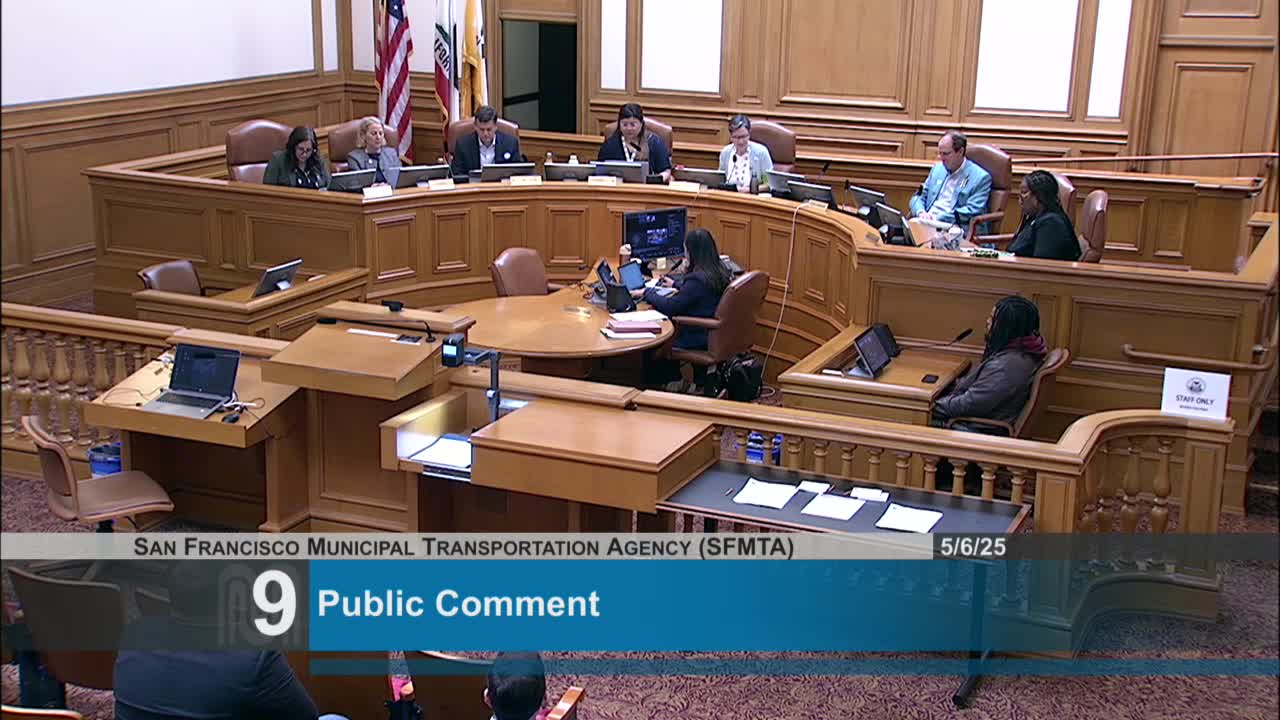Article not found
This article is no longer available. But don't worry—we've gathered other articles that discuss the same topic.
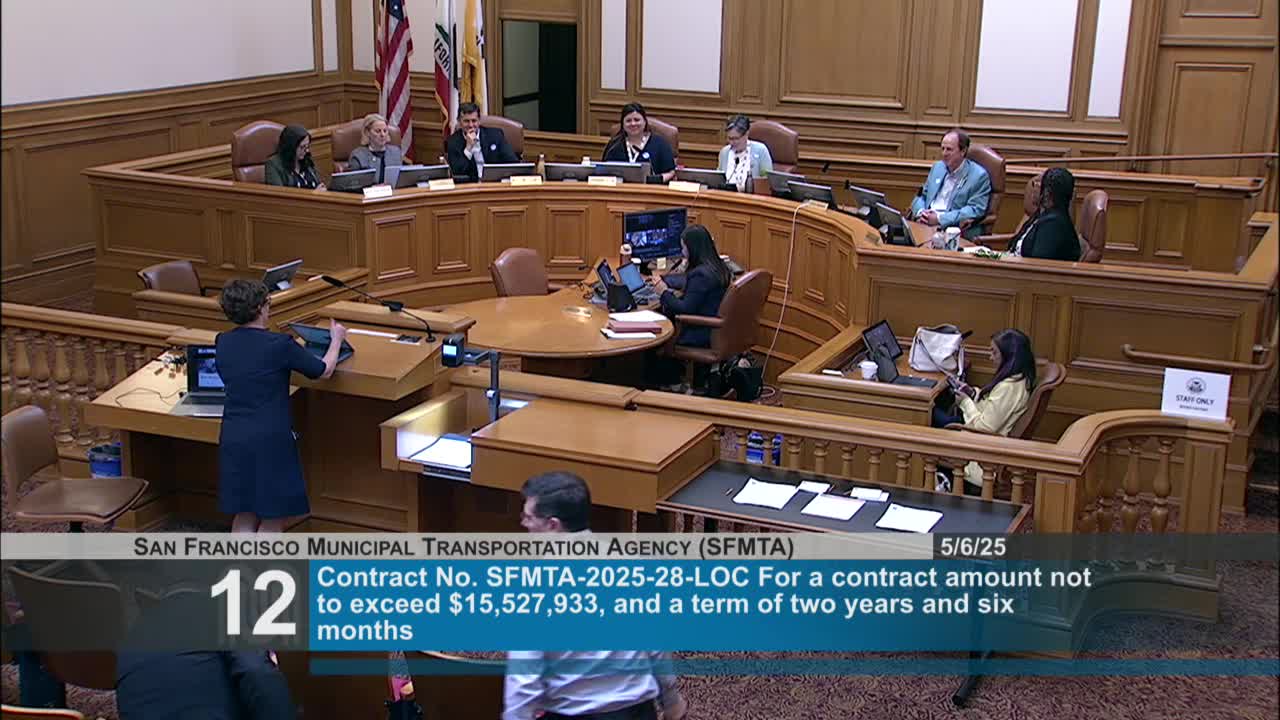
SFMTA updates board on Muni Metro capacity study; seeks to shape grantable capital package for next 10–15 years
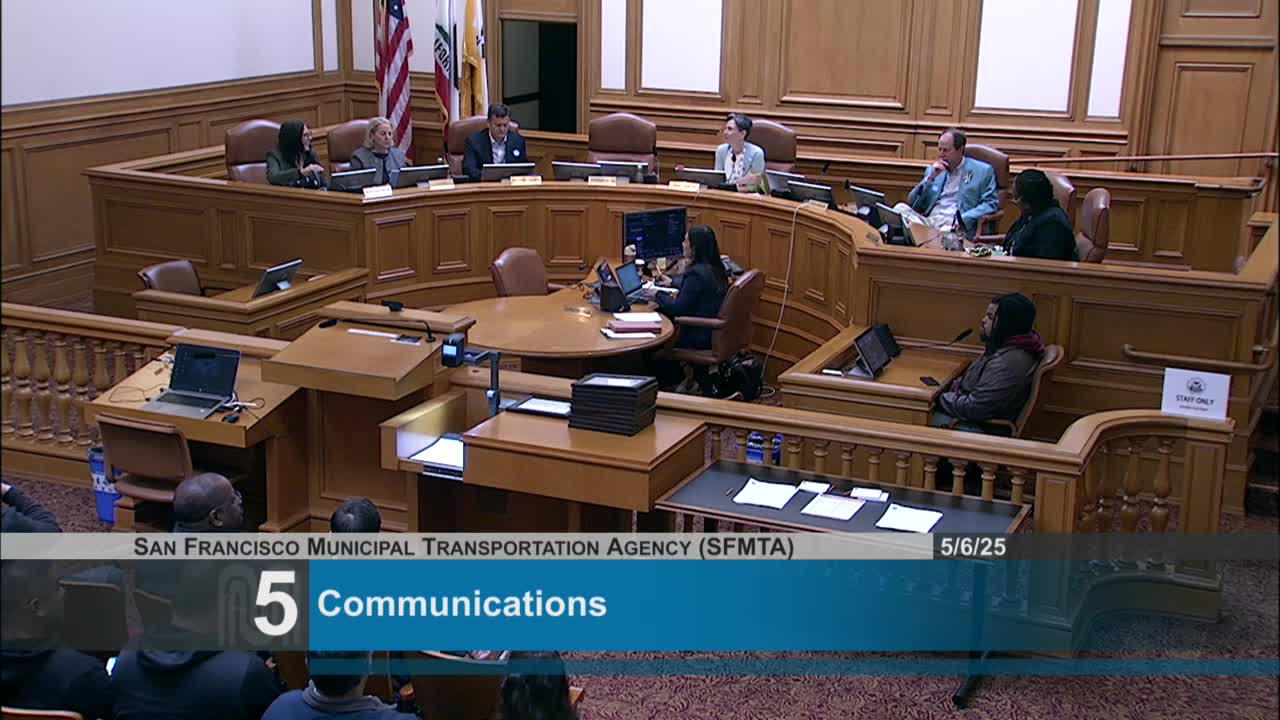
SFMTA director honors sign shop, rolls out reorganization, EV curbside charging pilot and school daylighting progress
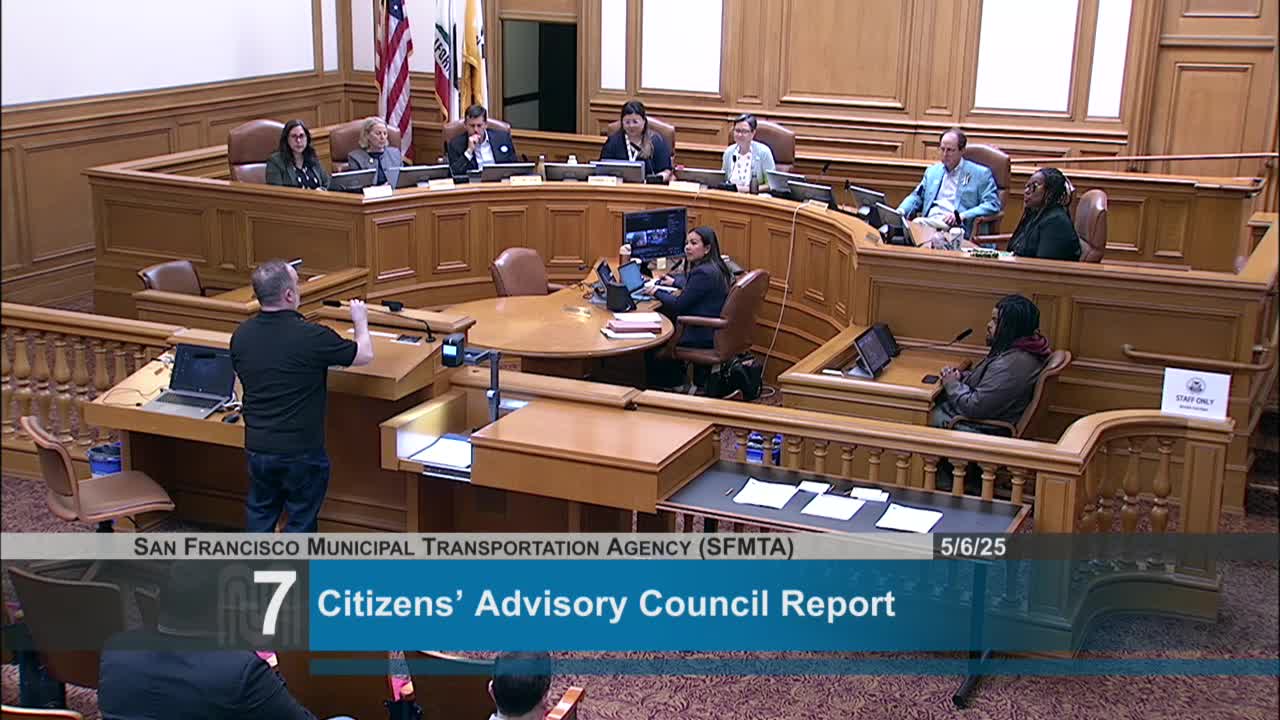
SFMTA Citizens Advisory Council urges rejection of Waymo on Market Street; public commenters split
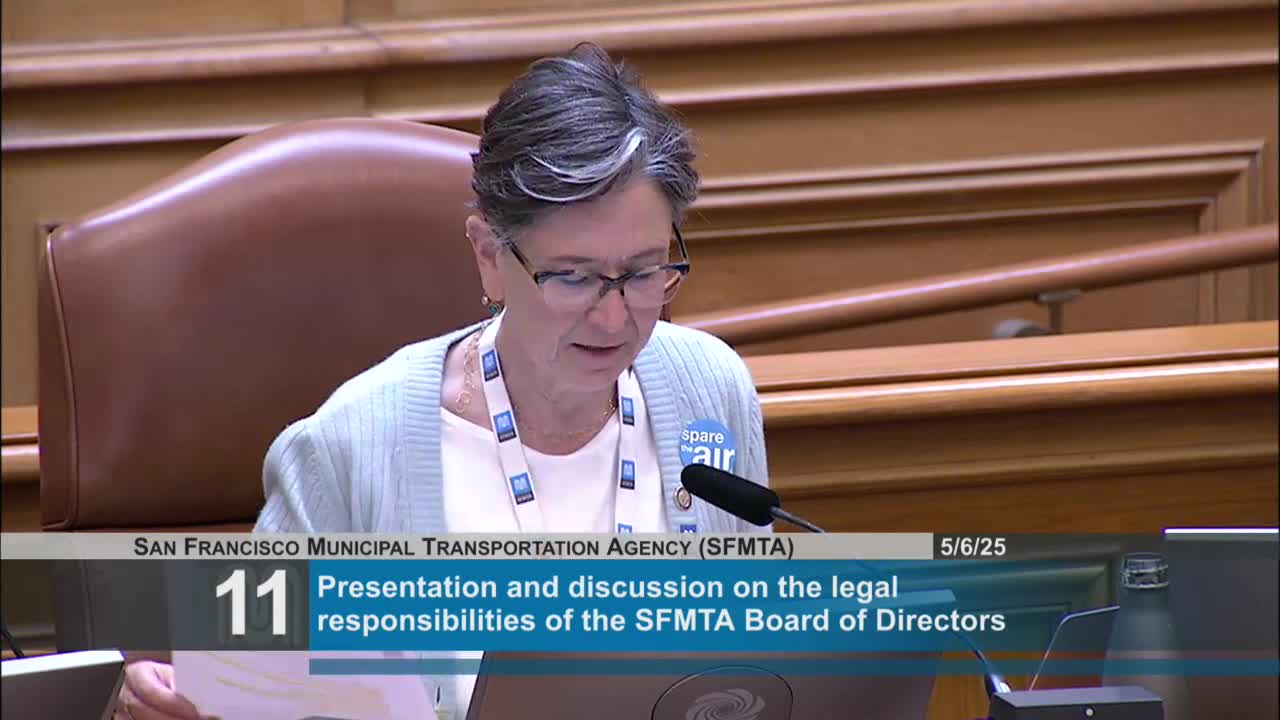
SFMTA approves sole‑source $15.5M contract with Wabtec for LRV4 brake system overhaul
